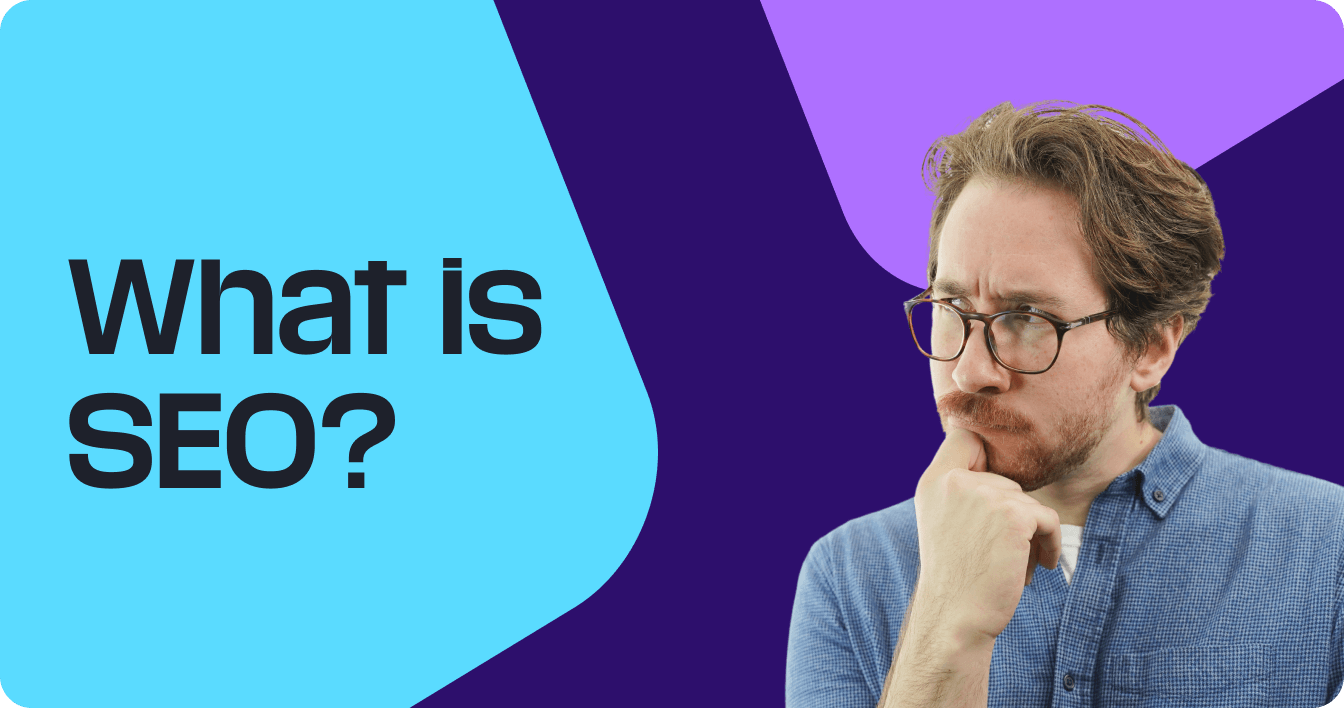SEO vs. PPC: What’s the difference?
While both target search results, use keywords, and optimize for search intent, they focus on different areas of the search results, with SEO concentrated on organic search results and PPC focused on PPC search results.
People say SEO vs. PPC for a reason — the two digital marketing strategies are not the same.
Learn more about the difference between SEO and PPC below, including which to use — and when!
What is the difference between SEO and PPC?
The difference between SEO and PPC is search engine optimization (SEO) is the process of improving a website’s visibility in organic search results, while pay-per-click (PPC) advertising is the process of improving a website’s advertisements in paid search results.
Is SEO or PPC better?
If you want to drive short-term results, you might choose PPC. While if you want to focus on driving long-term results and a higher return on investment (ROI), you should choose SEO. Your job as a digital marketer is determining which is better for your marketing goals, like using PPC vs. SEO for a new product launch and SEO vs. PPC for a top-of-the-funnel topic.
When should I use PPC vs. SEO?
Every business is different, but these are our recommendations for when to use PPC vs. SEO:
| Scenario | Use PPC | Use SEO |
| New product or service | X | |
| Company rebrand | X | X |
| Pre-determined audience | X | |
| Full-funnel reach | X | |
| Sales or promotions | X | |
| Brand awareness | X | X |
| Nurturing | X | X |
| Conversion | X | X |
| Long-term ROI | X | |
| Short-term ROI | X |
Learn the basics of SEO
In this section, we discuss important SEO basics to better understand its difference from PPC and what makes SEO worth it.
What is SEO?
Search engine optimization is optimizing a website to improve its visibility in organic search engine results pages (SERPs). Common optimizations include researching keywords, creating SEO content, writing title tags, and building backlinks.
What are the pros of SEO?
The advantages of SEO include the following:
| Pro | Learn more |
| Cost | Unlike PPC, you do not pay when someone clicks on your listing in organic search results. |
| Return on investment (ROI) | SEO is an effective long-term investment because its results compound over time as your SEO efforts grow. |
| Reach | With SEO, your business can reach users throughout the buying funnel. You don’t have to worry about ad blockers hiding your site. |
| Trust | Appear in search results throughout the buying funnel, and you build trust with users by demonstrating that you’re a real business. |
| Quality | Based on your keyword targeting, you can attract qualified traffic with SEO, which can help your business generate more leads and sales from SEO. |
| Maintenance | While SEO is ongoing, it doesn’t require the same maintenance as PPC campaigns, which often need targeting and budget adjustments. |
What are the cons of SEO?
The cons of SEO include the following:
| Con | Learn more |
| Time to ROI | Compared to PPC, SEO does not deliver overnight results. Instead, most businesses invest in SEO for three to six months before seeing ROI. |
| Skill sets | SEO also requires several skill sets to succeed, from search engine optimization to content writing to web development. |
| Competition | With more businesses doing SEO, it’s become a competitive market. That means appearing for high-volume keywords is harder, which can affect your ROI. |
| Algorithms | Search engine algorithms can change their ranking factors anytime, requiring your team to pivot its efforts, like resolving page speed issues. |
| Measurable ROI | Measuring SEO’s return on investment is more difficult than paid strategies. In most cases, you’ll need to calculate this manually. |
What are the use cases for SEO?
Based on the pros and cons of SEO, what are some of its best use cases? SEO is great for the following:
- Building brand awareness
- Reaching all buying funnel stages
- Increasing website traffic
- Improving lead quality or average sale value
- Growing search real estate by appearing in both organic and paid results
- Optimizing marketing costs
Typically, companies see SEO as a long-term investment in their marketing and business objectives.
Learn the basics of PPC
Learn more about PPC in the SEO vs. PPC debate below:
What is PPC?
PPC is advertising a brand, product, or service on ad networks using the cost-per-click (CPC) bidding model. Common PPC tasks include researching keywords, writing ad copy, adjusting budgets, optimizing landing pages, and more.
What are the pros of PPC?
The pros of PPC include the following:
| Pros | Learn more |
| Time to ROI | PPC delivers a fast ROI. As soon as your ads go live, they can drive revenue for your business. |
| Measurable ROI | You’ll also find it’s easy to measure PPC’s ROI. Google Ads, for instance, tracks your return on investment for you. |
| Targeting | PPC offers advanced targeting options, from interests to location, which you can use to reach your target market. |
| Reach | Like SEO, PPC can reach users throughout the buying funnel. You will have to pay for this reach, which gets more expensive the closer you are to purchase. |
What are the cons of PPC?
Learn more about the cons of PPC below:
| Cons | Learn more |
| Cost | PPC requires an ongoing investment. If you stop paying, your ads stop running, so your sales will also stop. |
| Maintenance | PPC also demands more maintenance than SEO. You’ll need to revise keywords, bids, ad copy, and more to minimize ad fatigue. |
| Effectiveness | Ad fatigue and ad blockers can all affect PPC’s effectiveness. Fraudulent clicks can also drain your budget quickly. |
What are the use cases for PPC?
Based on the pros and cons of PPC, what are some everyday use cases? A few include:
- Supporting a new product or service launch
- Building brand awareness for a rebrand
- Targeting competitor names or your own
- Capturing bottom-of-the-funnel traffic
- Maximizing search real estate by appearing in both paid and organic search results
Because of its cost, PPC is often a short-term investment, though businesses will have long-term campaigns with lower costs, like campaigns targeting your unique brand, product, or service names. Of course, this approach varies.
Turn SEO vs. PPC into SEO and PPC with digital marketing experts
People might say SEO vs. PPC, but in our decades of experience, we’ve found SEO and PPC is the better option. These two digital marketing strategies can help businesses improve their marketing, sales, and ROI. And if you’re looking for help bringing the two together and launch an effective search engine marketing (SEM) strategy, ask our digital marketing experts.
We offer both SEO and PPC services to help you completely dominate the search results.
Reach us online by contacting us today (we’ll be in touch if we think we’re a good fit for your team)!

$3bn+
revenue driven for clients



Add WebFX to your content marketing toolbox today
Get SEO Proposal$3bn+
revenue driven for clients



Add WebFX to your content marketing toolbox today
Get SEO Proposal


